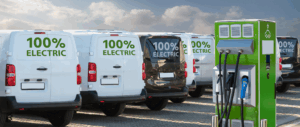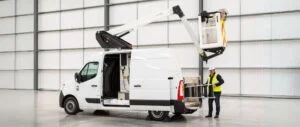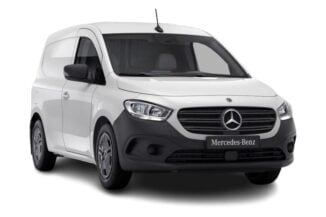Following the Autumn Budget 2024, the UK government unveiled substantial double cab pickup tax changes. These popular vehicles, previously classified as commercial vans, will be treated as company cars for tax purposes from April 2025.
The changes stirred considerable interest among vehicle owners and businesses, particularly those heavily dependent on these vehicles for their day-to-day operations.
Read on to discover how the upcoming tax changes could affect you and your business.
Which pickup trucks qualify as commercial vehicles in 2024?
To qualify for tax benefits, each pickup must be eligible as a Light Commercial Vehicle (LCV). While single cab pick-up vehicles are automatically categorised as LCVs, other cab styles must meet additional HMRC requirements to be treated as commercial vehicles.
Currently, HMRC categorises double cab pick-up vehicles as either cars or vans the same way it classifies vehicles for VAT purposes. According to this criteria, a vehicle with a payload of one tonne (1,000kg) or more qualifies as a van for tax advantages.
Moreover, as per an agreement between Customs and the Society of Motor Manufacturers and Traders (SMMT), a hard top constructed from materials like metal or fibreglass, with or without windows, contributes a standard weight of 45kg. If a hard top is installed on a double cab pick-up vehicle with a payload of 1,000 kg, the truck is perceived as a car for tax purposes due to a new payload of 955 kg. This regulation extends to the weight of other optional accessories, as stipulated by HMRC.
Changes to double cab pickup BIK tax and capital allowances from April 2025
Fleets were warned last year about the potential risk of a significant increase in tax bills with HMRC scrutinising vehicle categorisation for Benefit-in-Kind (BIK) tax purposes. Years of discussion about whether certain vehicles should be classified as cars or vans, followed by the HMRC winning the argument that Coca-Cola’s Vauxhall Vivaro and VW Transporter T5 Kombis should be considered cars rather than vans, signified imminent and impactful changes on the horizon. And here they are.
As of 1 April 2025 for corporation tax and 6 April 2025 for income tax, double cab pick-up will be treated as cars for the purposes of capital allowances, Benefit-in-Kind (BIK), and certain deductions from business profits. Meanwhile, there has been no change to the VAT treatment for double cab pick-ups.
The decision to automatically designate double cab pick-ups as company cars will impact fleet finances, as cars incur higher expenses in terms of tax and national insurance compared to vans. This also applies to any associated fuel benefits provided. According to the Countryside Alliance, these changes could potentially raise the tax bill on a standard double-cab pickup by up to 211%.

HMRC U-turn on double cab pick-up tax changes in 2024
The previous government had attempted to introduce the same change once before. On 12 February 2024, HMRC announced that their interpretation of the legislation concerning the favourable tax treatment of pick-up trucks would be altered starting from 1 July 2024. However, just a week later, HMRC determined that the proposed change from July 2024 would impact businesses and individuals in a way that does not align with the broader objectives of the government. Well, until now.
Increased Benefit in Kind company car tax
Currently, crew cab pickups are treated as goods vehicles for tax reasons, granting them a flat BIK tax rate. This classification aligns with their primary purpose as work vehicles, offering businesses a cost-effective solution for their operational needs.
Because cars are charged on a sliding scale based on emissions, shifting double cab pickups into the company cars category will result in higher BIK tax rates. What’s more, with many double-cab pickups featuring larger diesel engines, the change will likely push them into the highest tax bracket.
For the current tax year (2024-25), the BIK tax liability for light commercial vehicles is £3,960. This means that under the new regulations, the Ford Ranger priced at approximately £47,000 and emitting over 170g/km of CO2, would fall into the 37% bracket, resulting in a BiK of about £17,390 per year. This would lead to an employee tax of £6,956 per year for a 40% taxpayer or £3,478 per year for a 20% taxpayer.
However, the Treasury reassured that transitional BIK arrangements will apply to employers that have purchased, leased or ordered a double cab pick-up before April 2025. These vehicles will be able to use the previous treatment until their eventual sale, lease expiration, or 5 April 2029 – whichever comes first.
Higher National Insurance Contributions for driving pickups as company vehicles
Employers can expect a rise in their National Insurance (NI) responsibilities if their employees drive a company truck. As the BiK tax for vehicles escalates, employers must also cover additional Class 1A NI contributions. This may result in significant extra expenses, particularly for businesses that rely on a fleet of double cab pick-up trucks for their daily operations.
Impact on the capital allowances
According to Peter Griffiths, tax director at Hazlewoods Accountants and Business Advisers, the change will have a substantial impact on capital allowances:
”Currently, a double cab pickup potentially qualifies for a 100% tax allowance on acquisition (under the £1m annual investment allowance), meaning the full cost can be set off against the taxable income in the year of purchase (…) Under the new regime announced in yesterday’s Budget, there will only be the option to write these vehicles down at 6% a year, so it will take much longer to obtain tax relief.”
However, the Budget Red Book confirmed that the existing capital allowances treatment will apply to those who purchase double cab pickups before April 2025.
No revisions on the VAT treatment of crew cab pickups
The good news is that the VAT treatment of double cab pick-ups remains unchanged. HMRC will continue to treat double cab pick-up vehicles as goods vehicles for VAT purposes as long as they have a minimum of one-tonne payload, enabling businesses to reclaim tax paid in accordance with the standard regulations.
Effect of the changes on fleet costs
The new regulations may prompt businesses operating in construction, farming and other industries where pickups are commonly used, to reconsider their fleet construction. While double cab pickups are highly versatile, a substantial hike in tax burden could force businesses to replace these vehicles with either traditional vans (which continue to benefit from lower BiK taxes) or electric vehicles (EVs), boasting reduced tax rates owing to their environmentally-friendly emissions.










